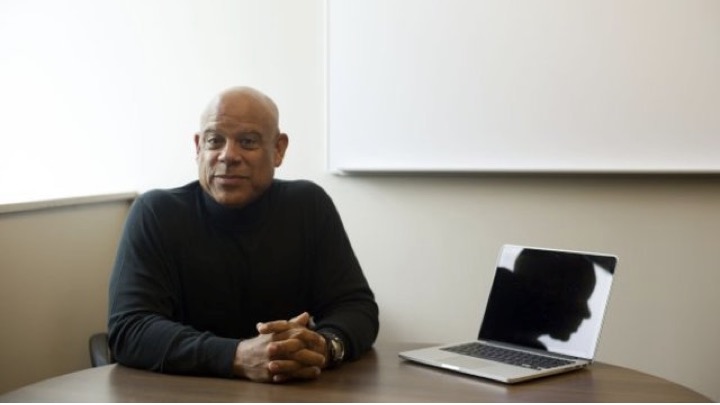
Chances are, if you've ever stuck a disk drive into a computer or printed from a computer or even used a computer with a color screen, you have computer scientist and engineer, Mark Dean, to thank for all of that.
While he may not be as known as computer gurus like Steve Jobs or Bill Gates, Mark Dean's contributions to the personal computer aren't any less notable.
He holds some of the largest, most groundbreaking personal computer patents including the first color PC monitor and the first gigahertz chip. He also co-invented the Industry Standard Architecture system bus, which allows for computer plug-ins such as disk drives and printers.
Born in Jefferson City, Tennessee, in 1957, Dean helped launch the personal computer age with work that made the machines more accessible and powerful.
From an early age, Dean showed a love for building things; as a young boy, Dean constructed a tractor from scratch with the help of his father, a supervisor at the Tennessee Valley Authority. While still in high school, he also built his own computer, radio and amplifier.
Dean also excelled in many different areas, standing out as a gifted athlete and an extremely smart student who graduated with straight A's from Jefferson City High School. In 1979, he graduated at the top of his class at the University of Tennessee, where he studied engineering.

As an engineer, Dean proved to be a rising star at the company. Working closely with a colleague, Dennis Moeller, Dean developed the new Industry Standard Architecture (ISA) systems bus, a new system that allowed peripheral devices like disk drives, printers and monitors to be plugged directly into computers. The end result was more efficiency and better integration.
But his groundbreaking work didn't stop there. Dean's research at IBM helped change the accessibility and power of the personal computer. His work led to the development of the color PC monitor and, in 1999, Dean led a team of engineers at IBM's Austin, Texas, lab to create the first gigahertz processing chip chip—a revolutionary piece of technology that is able to do a billion calculations a second.
These inventions help skyrocket personal computing sales in the late 80's and early 90's making personal computers a part of every day life.
In all, Dean holds three of the company's original nine patents and, in total, he has more 20 patents associated with his name.
Despite his early success, Mark Dean continued to further his education. He earned his master's degree in electrical engineering from Florida Atlantic University in 1982. Then, 10 years later, he completed his doctorate in the same field from Stanford University.
In 1996, he was named an IBM fellow, the first African-American ever to receive the honor. A year later, he was honored with the Black Engineer of the Year President's Award and was inducted into the National Inventors Hall of Fame. In 2001, he was inducted as a member of the National Academy of Engineers.
You can check "educator" in his resume as well. Dean taught computer science at Harvard University. Currently, he is the John Fisher Distinguished Professor at the University of Tennessee.








